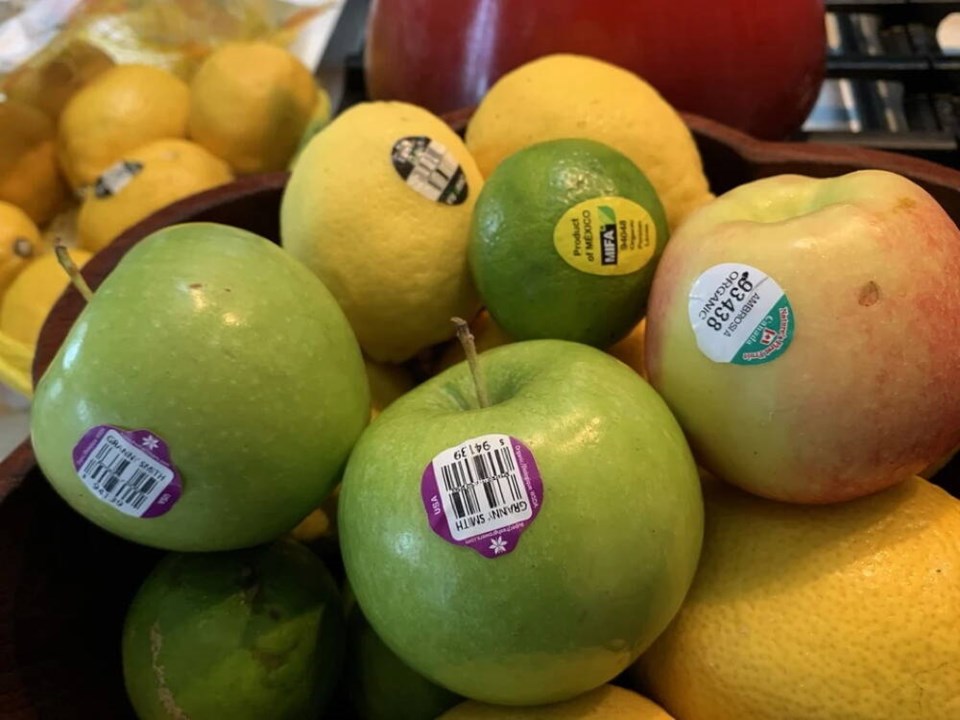The B.C. municipality of Summerland wants to peel off non-compostable stickers on fruits and vegetables permanently.
Called price lookup codes, the small, ubiquitous stickers are stuck on many types of produce, including apples, avocados, oranges and peppers, for inventory and checkout purposes.
But the stickers, which are usually made of or are coated with vinyl, pose a serious problem for compost processors, said Summerland councillor and deputy mayor Erin Trainer.
“It seems like such a small thing, but these little stickers create a huge problem for our composting systems, not to mention they’re microplastics,” she said.
Advocates and environmentalists have been sounding the alarm over the harmful effects of the stickers, but the issue hit home for Summerland earlier this year after it opened a new organics composting facility that turns food waste into high-grade compost that can be used in gardens.
“The problem is, people don’t take time to peel those stickers from produce and it’s very difficult to screen those stickers,” said Trainer. “They basically gum up the system.”
The stickers are difficult to remove at compost sites and typically get ground up along with food scraps and end up contaminating the compost.
The district has submitted a motion to the Union of B.C. Municipalities, which meets in Vancouver for its annual convention in September, urging it to petition the B.C. and federal governments to mandate the use of compostable stickers.
The federal and provincial governments have paid for two-thirds of the cost of Summerland’s composting facility, noted Trainer. As well, both levels of government, regional districts and municipalities across B.C. and local First Nation governments have put up to $30 million into a program that aims to keep organic waste out of landfills and to increase composting capacity in the province.
Now the government should go the last mile and help facilities do their jobs properly, she said.
“If the governments are going to be funding these great programs, we need help to help us get rid of those stickers so these programs and facilities can be a success,” Trainer said, adding a switch to compostable stickers is a “no-brainer.”
Because food labelling is a responsibility shared by Health Canada and the Canadian Food Inspection Agency, Trainer believes change has to be federal.
“There’s so much technology now that allows for compostable bags so why can’t we make compostable stickers? There’s already solutions out there.”
Recently, U.K. grocery giant Tesco started tattooing, or laser-etching, its avocados in order to cut down on plastic waste. Some companies have also started making compostable produce stickers, although they are not yet widely available.
Since December 2022, the federal government has banned single-use plastics including checkout bags, cutlery, straws, and food-service containers to reduce plastic waste and greenhouse gas emissions. Produce stickers, however, were not included.
In a regulatory paper, Environment Canada said produce stickers are a “common contaminant” that affects compost quality. It noted that the presence of plastic in compost, when used as fertilizer, could contribute to microplastics in the environment.
Efforts to remove it, such as sorting them at facilities, is labour and cost-intensive and may result in food waste ending up in landfills, it said.
The paper proposed that would require all produce stickers be compostable, but did not provide a timeline.
>>> To comment on this article, write a letter to the editor: [email protected]



